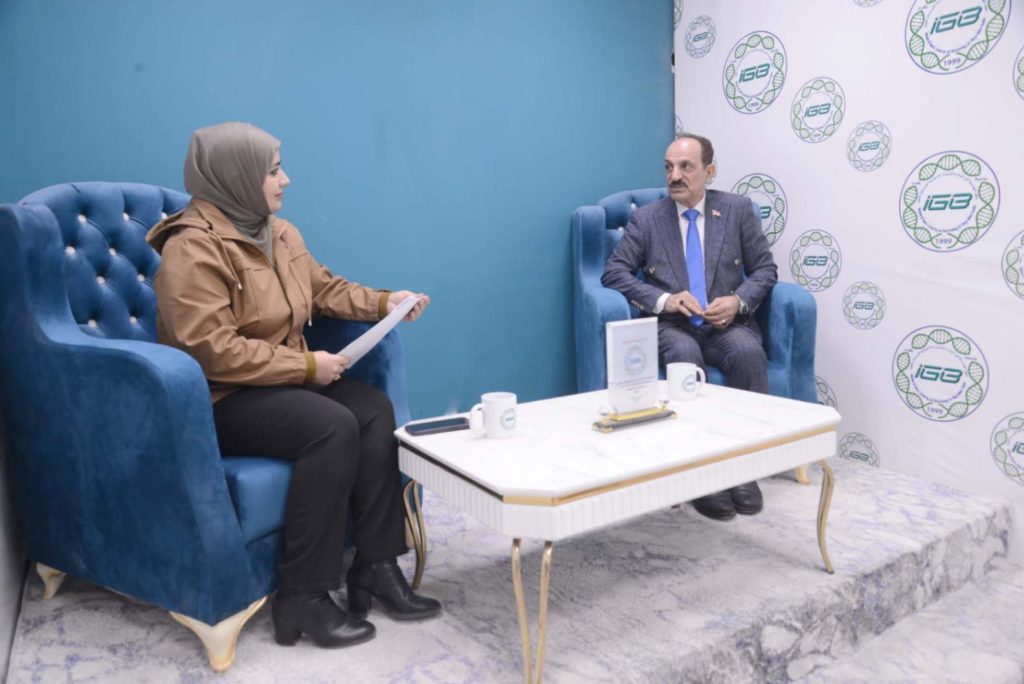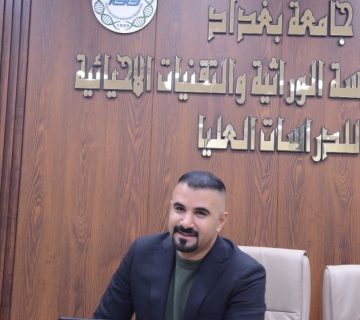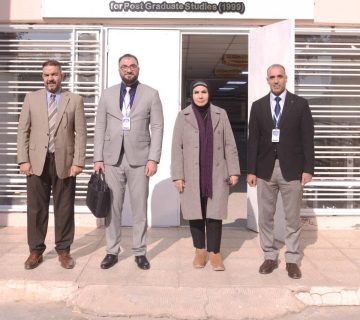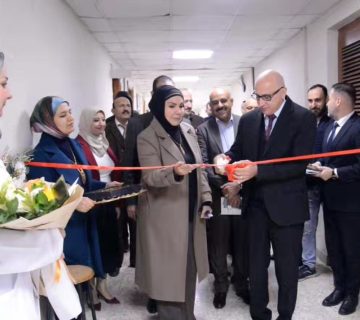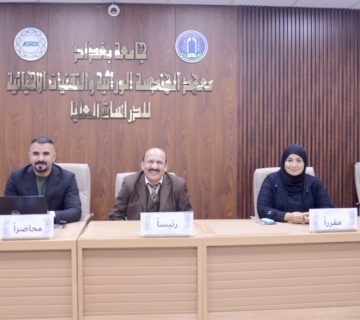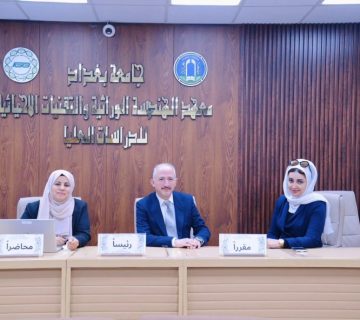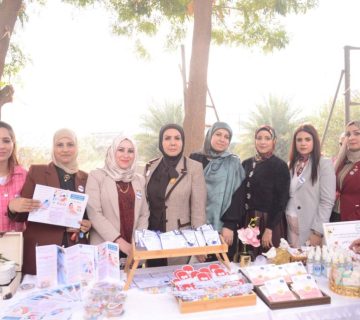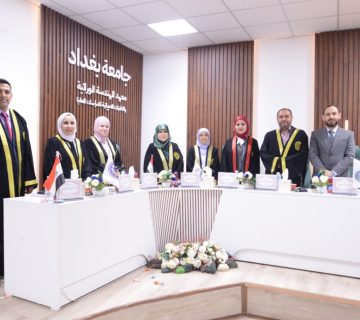Dr. Issam Al-Jumaili in “A Success Story” Segment: I Have 15 Patents by 2024, and My Research on Gene Sequencing Has Been Compared with Studies Outside Iraq
Interview by: Rand Qusay
Edited by: Ahmed Mohammed Zumeim
Photography: Moan Rabee Abbas
General Supervision: Dr. Rami Ali Al-Tamimi
From Baghdad came the message, and in Basra, the first steps of serious scientific work began, leading to a dissertation written in London.
His name is synonymous with patents, especially after achieving a record number of them. He has witnessed generations of Iraqis since the 1970s up to the present day, excelling in his specialization, “Chemistry,” and navigating its depths.
He, along with Dr. Ali Al-Zu’aq and others, was among the founding pioneers of the Genetic Engineering and Biotechnology Institute for Graduate Studies at the University of Baghdad, opening doors for generations that will remember and celebrate their accomplishments.
He is Professor Issam Fadel Alwan Al-Jumaili, our guest in the “A Success Story” segment from the Genetic Engineering Institute.
Early Life and Promising Beginnings
Dr. Issam begins our interview by stating that “I was born in Baghdad and completed my studies in chemistry at its mother university (University of Baghdad) in 1978. I earned my master’s degree from the same university in 1980 and was first appointed to the University of Basra, where I stayed for four years until I received a scholarship to England to obtain my PhD in 1985. After that, I returned to my homeland to start teaching undergraduate and graduate students in biochemistry.
Simultaneously, I was closely connected to the University of Baghdad, conducting various studies with the College of Science, where my research on gene sequencing was compared with studies conducted outside Iraq.
During this time, I was also in touch with Dr. Ali Al-Zu’aq, the founding father of the Genetic Engineering and Biotechnology Institute for Graduate Studies at the University of Baghdad.”
My Teachers: Pillars of My Success
Dr. Issam expresses gratitude in the interview, saying, “All the professors under whom I studied have always been, and remain, pivotal figures in my journey. They were among the finest scientists in Iraq during the 1990s. At that time, the highest degree offered in Iraq was a master’s degree until the idea of introducing PhD studies emerged.
It was proposed that a PhD program should have three supervisors from specialized fields. For my master’s degree, I had two supervisors. The master’s degree system required the supervision of two professors, and this became the foundation for the later development of PhD programs.”
Role in Establishing the Genetic Engineering Institute
Dr. Issam adds, “When it came to the Genetic Engineering Institute at the University of Baghdad, I was among the founders alongside Dr. Ali Al-Zu’aq. Dr. Al-Zu’aq proposed the idea of establishing a dedicated institute for postgraduate studies in genetic engineering and biotechnology.
Before that, it was a branch affiliated with the College of Science at the University of Baghdad.
Dr. Al-Zu’aq and I went to the Ministry of Higher Education and Scientific Research to present the ministry’s position on opening the Genetic Engineering Institute and highlight the importance of research in this field. The ministry welcomed the idea, and we launched postgraduate diploma and master’s programs in biotechnology.
The postgraduate branch in the sciences was not closed; instead, a biotechnology department was established in the College of Science, which became the second undergraduate department in life sciences.”
He continued, “The institute was founded in 1999, and the first batch of students for the postgraduate diploma program was admitted in 2000. These students were later transitioned to master’s programs and eventually to PhD studies in 2004.
As founders, we equipped the institute with devices with the help of the ministry and worked collaboratively to ensure the success of this scientific mission and achieve the goal of spreading knowledge.
At that time, Dr. Ali Al-Zu’aq was the dean of the institute, Dr. Nahiya was the assistant dean, Dr. Nouria Abdul-Hussein was the head of the Genetic Engineering Department, and I served as the head of the Biotechnology Department.”
Golden Achievements
Regarding the number of students Dr. Issam supervised and who graduated under his mentorship, he revealed, “The number of students I supervised reached 120, including 60 master’s students, 40 PhD candidates, and 20 postgraduate diploma students.” He added, “Some of these graduates have taken on high-ranking positions in the country.”
Patents: A Hallmark of His Name
On his contributions to patents, Dr. Issam explained, “A patent represents something new that is either widespread or manufactured, and it is registered under the inventor’s name. It could be a novel idea that is registered under one’s name.
There are organizations responsible for intellectual property patents, and it is unlawful for anyone to use an idea patented by someone else. The patent holder can file a lawsuit in an international court against anyone who steals their idea. When we say ‘original research,’ we mean research that has never been conducted before.”
He also revealed that he has “15 patents registered up to 2024.”
His Advice
In conclusion, Dr. Issam offered a piece of advice to researchers and academic circles: “I urge students and instructors to work diligently and stay consistent. A student should present reports or seminars to the scientific committee to track their progress and address the challenges they face.
Instructors must ensure that students are properly guided during their coursework, emphasizing practical aspects in laboratory sessions. This ensures that the information provided to students is both comprehensive and applicable.”
